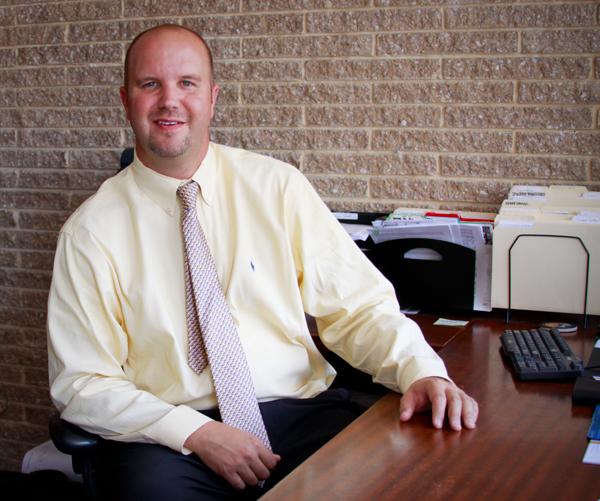After 13 years, Tim Miller is stepping down as the Student Association’s adviser — for the second time.
He took a one-year break a few years ago before returning to the post. But the director of the Center for Student Engagement said it was now time to pass along the responsibilities to someone who may be able to offer a fresher perspective.
“It’s not that I’m done with it or I’m over it or I don’t like it. This is not like I’m walking out, you know, dropping the mic and walking out,” he said. “I want someone else to get the chance, and I want the Student Association to have someone else with a different perspective.”
As the official adviser, Miller has overseen the executive team as well the SA Senate. He’s guided student leaders in how to push for major changes on campus, including the move of health services from K Street to the Marvin Center, the creation of the University calendar and the potential addition of a fall break next year.
Those who have worked with him say they’ll miss his realistic advice and dedication to student leaders.
He said it was important for students to have someone new to advise the organization. The 41-year-old also said that the SA would benefit specifically from an adviser younger than himself.
“I also wonder, ‘Do I have blinders on now? Am I advising the same way now that I advised 13 years ago?’” he said.
Lisa Rocco, who joined the CSE in January as a department operations manager, will take over the position. She has served this year as the adviser to the Joint Elections Committee, the organization that oversees student body elections.
Ashwin Narla, who served as SA president from 2012 to 2013, said Miller drove to campus one weekend during the summer to sit down with Narla and EVP Abby Bergren and strategize with them.
Narla said Miller pushed him to think deeper and figure out what exactly he wanted to get done in terms of improving student space, a key issue on his campaign platform. After creating a 22-page document outlining 10 ways for administrators to open more spaces for students, he accomplished several, including keeping Duquès Hall open until 2 a.m. and eliminating fees for students to rent out classrooms.
“He asked us, ‘How do you make this plan better? How do you address these concerns?’” Narla said.
Miller said the adviser tries to ensure that student leaders make realistic goals at the beginning of each year.
“It’s my job to help them think through and strategize how to be successful, but then it’s their job to go do it,” he said.
The SA adviser is also responsible for meeting with the president and executive vice president every week. Miller said he spends between 150 and 200 hours each year with the top student leaders.
John Richardson, who had served as president the year before Narla, said he and Miller clashed because Richardson was pushing for what he thought students wanted while Miller brought the University’s point of view into the conversation.
“It was always a pleasure to work with Tim. Tim certainly had good advice,” Richardson said. “But again I was working for the students, not for Tim.”
Miller doesn’t take credit for the SA’s accomplishments over the past 13 years — which have included increasing student fees to bolster the SA’s budget for student organizations and implementing a peer-support program. But he said the leaders who succeeded the most had the qualities he tried to reinforce.
“I want [the president and executive vice president] to be ethical. I want them to be humble people,” Miller said. “I want them to embrace down and dirty, ‘This is a horrible little annoying thing I have to do,’ as much as they embrace standing in front of 2,000 people and speaking.”
SA President Nick Gumas said Miller’s institutional knowledge has been helpful while determining how to fulfill campaign promises. University President Steven Knapp committed to Gumas’ peer-support program this spring, and Gumas’ push to reduce costs for internship credit was also implemented this semester.
Gumas said he first worked with Miller as an undergraduate senator while creating a survey about hazing on campus and ran his priorities as chair of the senate’s student life committee by the adviser at the beginning of his junior year.
“It was a good conversation on ‘This is maybe less realistic than this one, for this one you should try to think of it this way,’” Gumas said. “I think those types of conversations are always helpful. It’s always good to have input from informed members of GW.”
Executive Vice President Avra Bossov said weekly meetings with Miller have helped the team find the best ways to promote the SA’s agenda to both students and administrators.
She added that Miller has provided guidance to other student leaders on ways to create change on campus.
“I think he’s always been willing and open to meeting with the different SA members regarding their projects, so that’s been really helpful as well,” she said.







